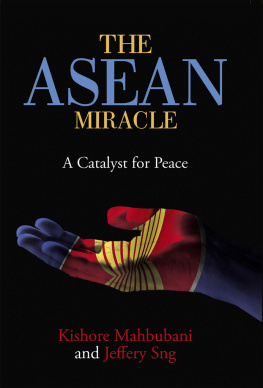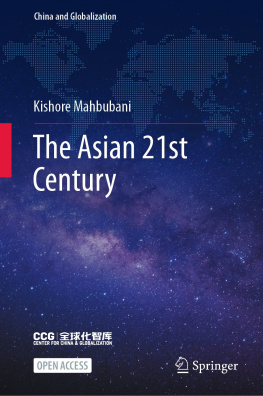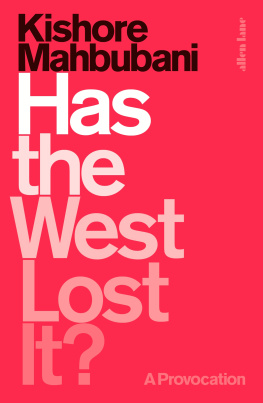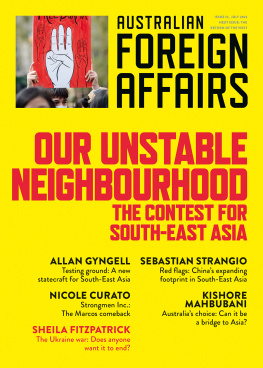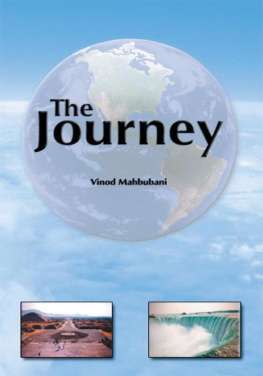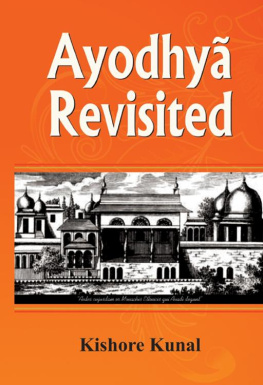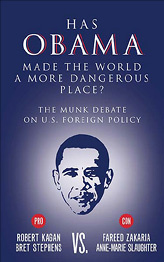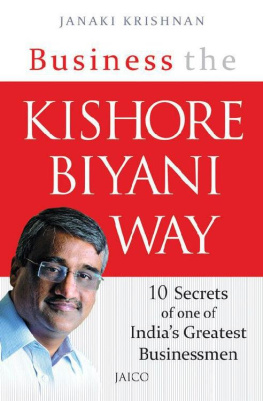Kishore Mahbubani - Has China Won?
Here you can read online Kishore Mahbubani - Has China Won? full text of the book (entire story) in english for free. Download pdf and epub, get meaning, cover and reviews about this ebook. year: 2020, publisher: PublicAffairs, genre: History. Description of the work, (preface) as well as reviews are available. Best literature library LitArk.com created for fans of good reading and offers a wide selection of genres:
Romance novel
Science fiction
Adventure
Detective
Science
History
Home and family
Prose
Art
Politics
Computer
Non-fiction
Religion
Business
Children
Humor
Choose a favorite category and find really read worthwhile books. Enjoy immersion in the world of imagination, feel the emotions of the characters or learn something new for yourself, make an fascinating discovery.

- Book:Has China Won?
- Author:
- Publisher:PublicAffairs
- Genre:
- Year:2020
- Rating:3 / 5
- Favourites:Add to favourites
- Your mark:
- 60
- 1
- 2
- 3
- 4
- 5
Has China Won?: summary, description and annotation
We offer to read an annotation, description, summary or preface (depends on what the author of the book "Has China Won?" wrote himself). If you haven't found the necessary information about the book — write in the comments, we will try to find it.
Has China Won? — read online for free the complete book (whole text) full work
Below is the text of the book, divided by pages. System saving the place of the last page read, allows you to conveniently read the book "Has China Won?" online for free, without having to search again every time where you left off. Put a bookmark, and you can go to the page where you finished reading at any time.
Font size:
Interval:
Bookmark:
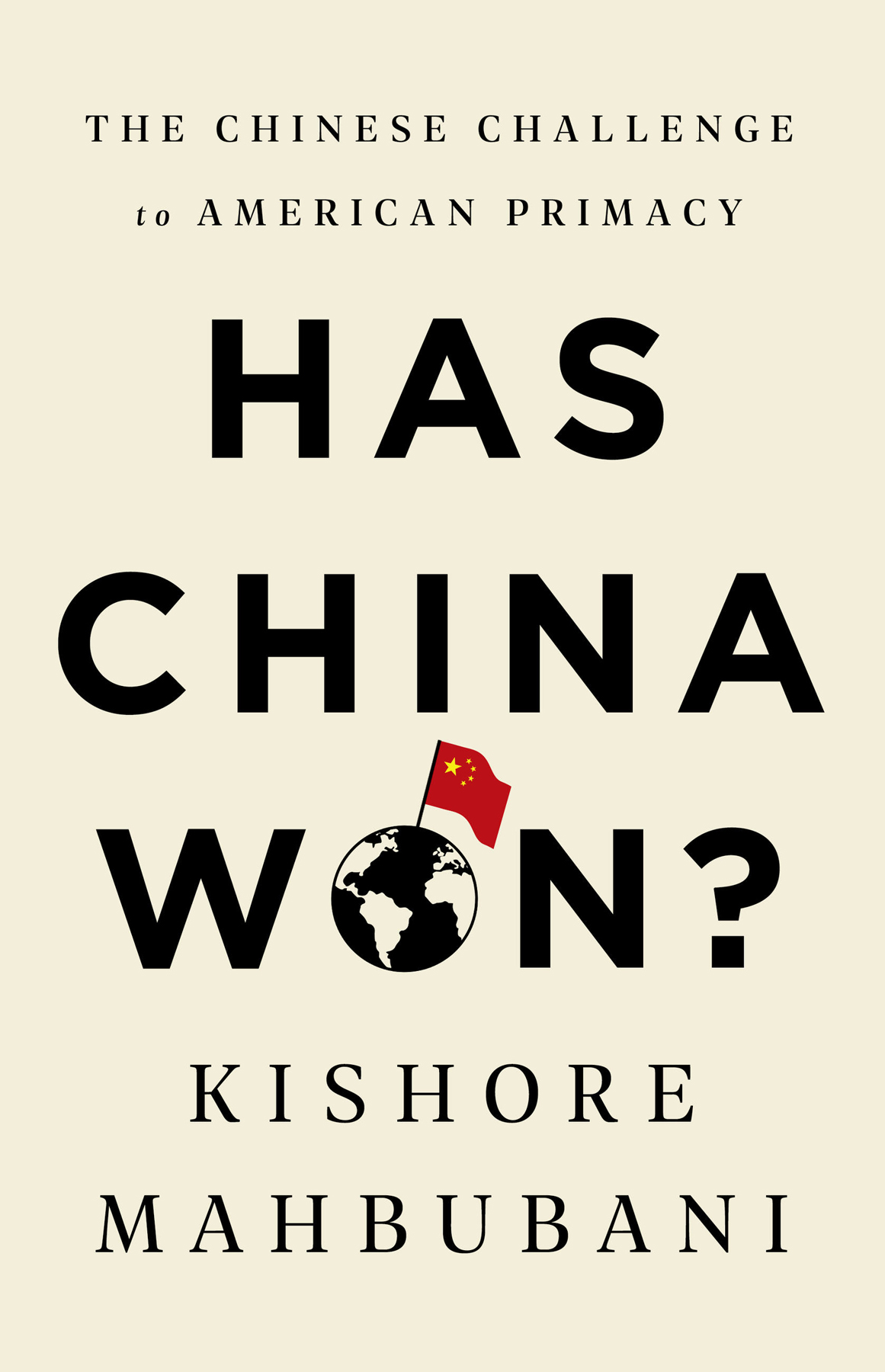
Copyright 2020 by Kishore Mahbubani
Cover design by Pete Garceau
Cover copyright 2020 Hachette Book Group, Inc.
Hachette Book Group supports the right to free expression and the value of copyright. The purpose of copyright is to encourage writers and artists to produce the creative works that enrich our culture.
The scanning, uploading, and distribution of this book without permission is a theft of the authors intellectual property. If you would like permission to use material from the book (other than for review purposes), please contact permissions@hbgusa.com. Thank you for your support of the authors rights.
PublicAffairs
Hachette Book Group
1290 Avenue of the Americas, New York, NY 10104
www.publicaffairsbooks.com
@Public_Affairs
First Edition: April 2020
Published by PublicAffairs, an imprint of Perseus Books, LLC, a subsidiary of Hachette Book Group, Inc. The PublicAffairs name and logo is a trademark of the Hachette Book Group.
The Hachette Speakers Bureau provides a wide range of authors for speaking events. To find out more, go to www.hachettespeakersbureau.com or call (866) 376-6591.
The publisher is not responsible for websites (or their content) that are not owned by the publisher.
Library of Congress Cataloging-in-Publication Data
Names: Mahbubani, Kishore, author.
Title: Has China won? : the Chinese challenge to American primacy / by Kishore Mahbubani.
Other titles: Chinese challenge to American primacy
Description: First edition. | New York : PublicAffairs, 2020. | Includes bibliographical references and index.
Identifiers: LCCN 2019045550 | ISBN 9781541768130 ; (hardcover) | ISBN 9781541768123 ; (ebook)
Subjects: LCSH: ChinaRelationsUnited States. | United StatesRelationsChina. | ChinaEconomic conditions20th century. | United StatesStrategic aspects. | ChinaStrategic aspects.
Classification: LCC D740.4 .M3115 2020 | DDC 327.51073dc23
LC record available at https://lccn.loc.gov/2019045550
ISBNs: 978-1-5417-6813-0 (hardcover), 978-1-5417-6812-3 (ebook), 978-1-5417-5867-4 (international)
E3-20200221-JV-NF-ORI
Has China Won?
China and the US are locked in a struggle for international primacy, and the result of this contest will shape the world order for generations to come. Kishore Mahbubani captures the complexity of this battle with the measured nuance and clear insight it deserves. Not to be missed.
I AN B REMMER , president of the Eurasia Group and author of Us vs. Them
Kishore Mahbubanis Has China Won? is a serious contribution: reviewing strategic wisdom from Kennan to Kennedy, asking provocative, even heretical questions about Chinas rise, and counseling a world safe for diversity.
G RAHAM A LLISON , Douglas Dillon Professor of Government, Harvard University, and author of Destined for War: Can America and China Escape Thucydidess Trap
Kishore Mahbubani has deep experience in diplomacy and international relations, an highly developed relatively rare ability to think strategically in complex settings, and a unique capacity (by virtue of his life story) to connect with and respect multiple civilizations and their values. These skills, insights, and experience are on full display in his new book, Has China Won? A provocative title, but a little misleading. In fact, he analyzes in an even-handed way the scenarios that could play out in the emerging rivalry between China and the USA. His assessment of the biases and mistakes on both sides is both brutal and crucial. It will take most readers out of their comfort zone, and that is part of its strength. There are many insights, but at the core is the proposition that the outcome over time will depend mainly on the capacity (or its absence) on both sides to understand and respect deep differences in civilizations that are built over hundreds and even thousands of years, ones that lead to varying governance structures and relative values with respect to individual freedoms, social and political stability, and more; in other words seeing the worlds through the eyes of the other. That said there is a wide range of common interests on which to build. Notwithstanding the title of the book, it is fairly clear by the end that in Mahbubanis view, either everyone (not just China and the USA) wins or no one wins. It is an important book at a crucial moment in history.
M ICHAEL S PENCE , recipient of the 2001 Nobel Memorial Prize in Economic Sciences
Has China Won? is a provocative title. In his latest book, Kishore Mahbubani explains why this is in fact the wrong question to ask. Despite rising resentment and mutual misperception, both the United States and China ultimately know that war between them will be cataclysmic. In this revelatory new book, Mahbubani appeals to the deeper rationality of both great powers, arguing that the greatest challenge of our times will be to answer the question of whether humanity has won. Both American and Chinese readers will benefit from Mahbubanis wisdom.
G EORGE Y EO , former minister of foreign affairs, Singapore
Americans should heed Kishore Mahbubanis astringent advice, unwelcome as it may be: cast away illusions about eternal US primacy and exceptional virtue protected by high walls. Instead, Washington should adopt a long-term international strategy anchored in balance and cooperation; reestablish sound internal leadership and governance; win friends abroad instead of driving allies away; avoid over-commitment; and express moral modesty. Military power is not the most important weapon in the Arsenal of Democracy.
D AVID M. L AMPTON , professor emeritus, Johns Hopkins School of Advanced International Studies, and Oksenberg-Rohlen fellow Freeman Spogli Institute, Asia-Pacific Research Center, Stanford University
Kishore Mahbubani has long extolled what the West taught the rest of the world and how many parts of Asia, including China and India, have benefited from what they have learned. Yet no one seems more surprised at what China has learned from the US than the United States itself, which now sees China purely as a rival that threatens its global primacy. Mahbubani asks pointedly: What did China do to deserve this? He has gone further than ever before to challenge his readers to think of the consequences if the rivalry is allowed to grow unchecked.
W ANG G UNGWU , university professor, National University of Singapore
Kishore Mahbubani has a remarkable ability to see through the complacent orthodoxies that lead great nations astray. Has China Won? identifies the myths and mistakes that are undermining Chinese and American relations with each other and the world, and it offers both countries candid and clear-eyed advice for how to do better in the future. Leaders in Beijing and Washington will not like everything he has to say, but they would do well to pay close attention to it anyway. And so should you.
S TEPHEN M. W ALT , Robert and Rene Belfer Professor of International Affairs, Harvard University
We need to know how China thinks and sees itself in the world, whether we see them as our friends, as our adversary, or somewhere in between. There is no better guide for westerners to the Asian worldview than Kishore Mahbubani. He shares the wealth of his knowledge and experience in this vitally important book.
L AWRENCE H. S UMMERS , former treasury secretary and former president, Harvard University
O NE THING IS CERTAIN.
The geopolitical contest that has broken out between America and China will continue for the next decade or two. Although President Donald Trump launched the first round in 2018, it will outlast his administration. The president has divided America on all his policies, except one: his trade and technological war against China. Indeed, he has received strong bipartisan support for it, and a strong consensus is developing in the American body politic that China represents a threat to America. General Joseph Dunford, chairman of the Joint Chiefs of Staff, has said that China probably poses the greatest threat to our nation by about 2025. He also added that it was right for the Trump administration to declare China a strategic rival.
Font size:
Interval:
Bookmark:
Similar books «Has China Won?»
Look at similar books to Has China Won?. We have selected literature similar in name and meaning in the hope of providing readers with more options to find new, interesting, not yet read works.
Discussion, reviews of the book Has China Won? and just readers' own opinions. Leave your comments, write what you think about the work, its meaning or the main characters. Specify what exactly you liked and what you didn't like, and why you think so.

